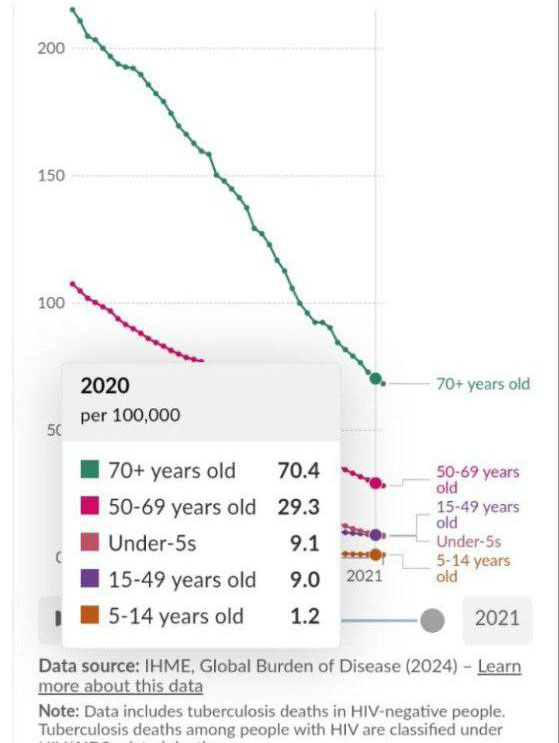
Articles, videos about Tongkat Ali, Black Ginger, and Butea Superba
Articles, videos about optimal sex
Jens Berges' blog
Part 1, August 2024
My name is Jens Berges, and, as I know by now, I have active tuberculosis. In retrospect it appears that I have had the disease for at least 5 years, which means: since before the pandemic.
I am a Scandinavian man, 72 years old. I live in Southeast Asia and I have lived here for more than four decades.
Even if I would have known that I would end up with active tuberculosis, I would still have settled in Southeast Asia. It's the best corner of the world, and I never regretted my migration.
Southeast Asia has by far the highest prevalence of tuberculosis in the world, so my current condition is not much of a surprise.
By WHO estimates, one quarter of the world population of 8.1 billion, roughly 2 billion, are infected. 46 percent of the world's tuberculosis cases are concentrated in Southeast Asia.
About 8.5 percent of the world's population live in Southeast Asia.
If there is a proportional relationship between population numbers, active tuberculosis, and latent tuberculosis, one may as well assume that in Southeast Asia, pretty much everybody has latent tuberculosis.
The math goes like this. 10.5 million active tuberculosis cases per year are proportional to 2 billion people with a latent infection. 10.5 million times 46 percent is 4.83 million (the number of active cases in Southeast Asia).
2 billion times 46 percent is 920 million. That is the number of latent tuberculosis cases that would be equivalent to the 4.83 million active cases in Southeast Asia per year.
But the population of Southeast Asia is only 676 million. Thus, statistically, everybody in Southeast Asia has at least latent tuberculosis.
About 1.5 million die each year of tuberculosis. The majority of those who die of, or with, tuberculosis are over 70 years of age.
The rest life expectancy of people aged 70 in 2024, with or without tuberculosis, isn't much.
Annuity tables, used primarily by insurance companies, calculate more than 10 years rest life expectancy for people in the US. The number may be higher for Europe or Japan, but it is lower for most of the world.
However, the question for people like me, at an age of 70 and over, is not so much, how many years our hearts will keep on pumping. A more sensible evaluation is, how much good time remains in store.
It's not a blessing to add years to one's life if those are years tainted by Alzheimer's, or bedridden years, or years in chronic pain.
I firmly believe that it's a blessing to die before it comes that far.
I have never been much of a patient, or of a customer, of health care institutions. I haven't been hospitalized in the past five decades. I have never had health insurance since I settled in Southeast Asia.
I would not mind if I were to drop dead today, and this has been my attitude for many years.
I am not on a hospital treatment regimen of toxic antibiotics for my tuberculosis. I have decided against it after a thorough evaluation of what that treatment would mean.
Tuberculosis, obviously, is a contagious disease. But because, as shown above, pretty much everyone in Southeast Asia anyway has latent tuberculosis, I am not a dangerous additional infection risk to my environment.
My symptoms are not as bad as people typically associate with tuberculosis. Sometimes I have a cough, and sometimes I don't. I never coughed blood, I don't lose weight, I have no fever, and no night sweats.
Compared to younger populations, tuberculosis symptoms are often mild in the elderly, not just in my case.
On the other hand, compared to younger populations, the side effects of tuberculosis chemotherapy are, in elderly populations, usually more severe (daily nausea, stomach pain, joint pain, insomnia, new or aggravated kidney and liver disease, vision loss, and hearing loss).
At the same time, even after having gone through the chemotherapy torture for six or more months, the risk of a relapse of tuberculosis in treated elderly patients is high.
If a relapse were to happen, the medical establishment would put me through the treatment torture all over again, and at that time at a considerably lower level of general health.
Thus, I believe that in my case, or, in general, for people age 70 or older, it makes good sense to forego tuberculosis chemotherapy.
At age 70 or older, one will soon have to die of something anyway, and tuberculosis may just be the preferable lot.
Of course, I would like to live without this disease. And I am really interested in whether there are treatments or cures that do not require the consumption of toxic antibiotics for at least half a year.
I will report on my research in this blog.
https://www.who.int/teams/global-tuberculosis-programme/
tb-reports/global-tuberculosis-report-2023/
tb-disease-burden/1-1-tb-incidence
https://en.m.wikipedia.org/wiki/
Southeast_Asia 
https://www.annuityadvantage.com/
resources/life-expectancy-tables/
